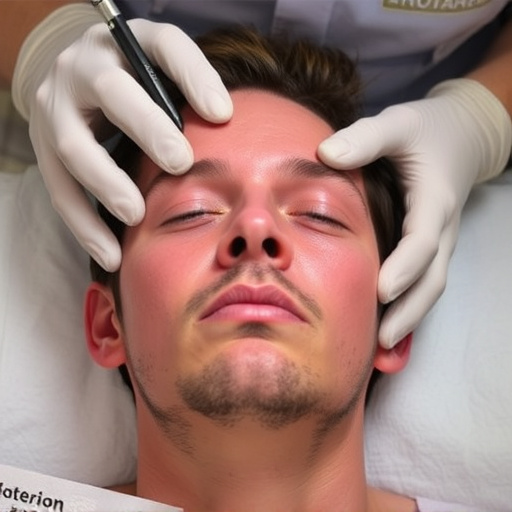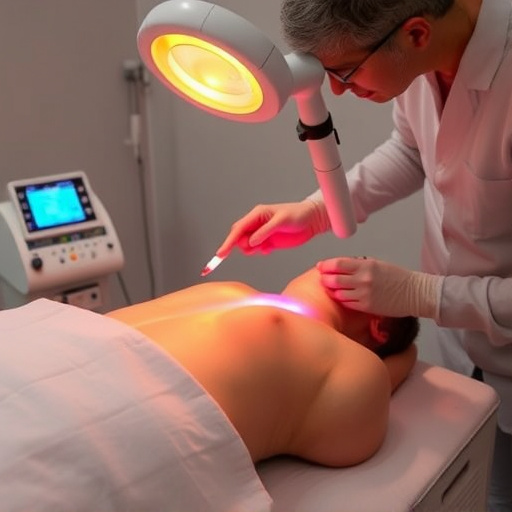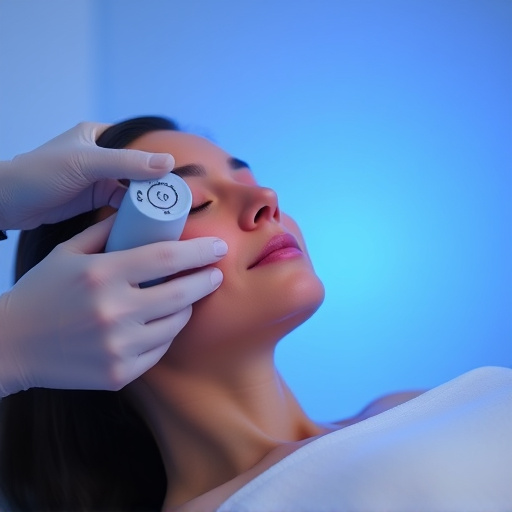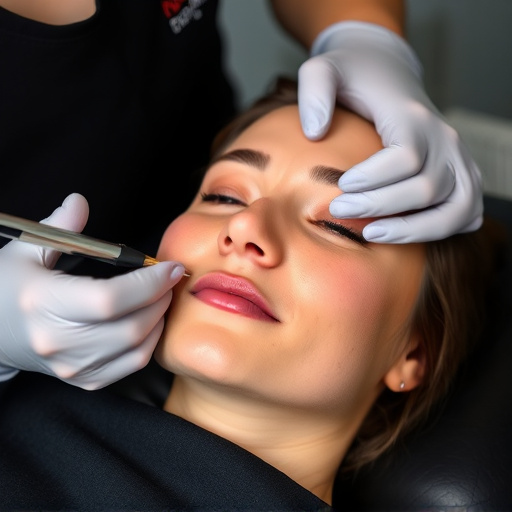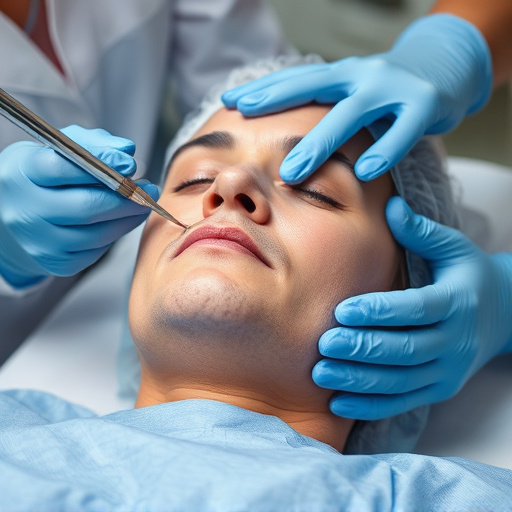Cystic acne, a severe skin condition requiring specialized treatment, differs from regular acne due to depth and bacterial buildup. Effective management involves advanced topical medications, procedures like chemical peels and laser therapy, and non-invasive therapies such as customized facials. At-home care routines with gentle cleansers, preventative ingredients, and sun protection are vital complements for improved complexion.
Cystic acne, characterized by deep skin lesions, can be a debilitating condition. This comprehensive guide delves into effective cystic acne treatment options, focusing on understanding its causes and distinctive characteristics. We explore medical treatments, from topical medications to surgical procedures, aiming at severe cases. Additionally, discover non-invasive therapies and tailored at-home care routines for improved skin health. Uncover the best practices for managing and minimizing the impact of cystic acne.
- Understanding Cystic Acne: Causes and Characteristics
- Medical Treatments for Deep Skin Lesions
- Non-Invasive Therapies and At-Home Care Routines
Understanding Cystic Acne: Causes and Characteristics
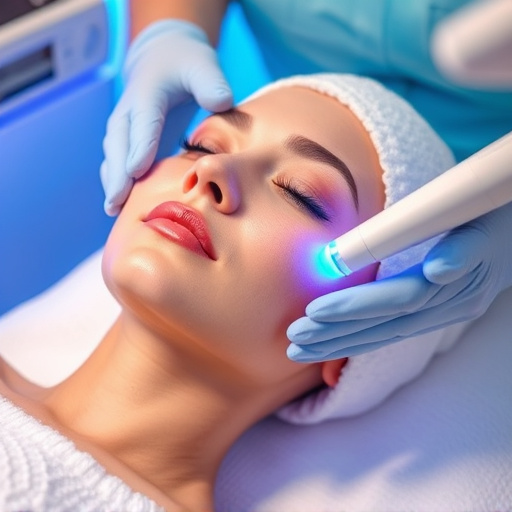
Cystic acne is a severe form of skin condition that goes beyond typical pimples and blackheads. It’s characterized by deep-seated lesions or cysts, often appearing as painful nodules beneath the skin’s surface. These cysts can be incredibly distressing, leaving unsightly scars and impacting self-esteem. Understanding its causes is crucial in tailoring effective cystic acne treatment.
The primary drivers include hormonal fluctuations, particularly during puberty, as well as genetic predisposition. It’s not just about excessive sebum production; it involves a blockage in the skin’s oil glands, leading to bacterial buildup and inflammation. Certain skincare products and even clothing materials can exacerbate the issue. Differentiating cystic acne from regular acne is essential because its depth and severity require specialized cystic acne treatment options like microneedling therapy or advanced topical medications, often in conjunction with other acne treatments. Even anti-aging treatments may be explored for post-inflammatory hyperpigmentation.
Medical Treatments for Deep Skin Lesions
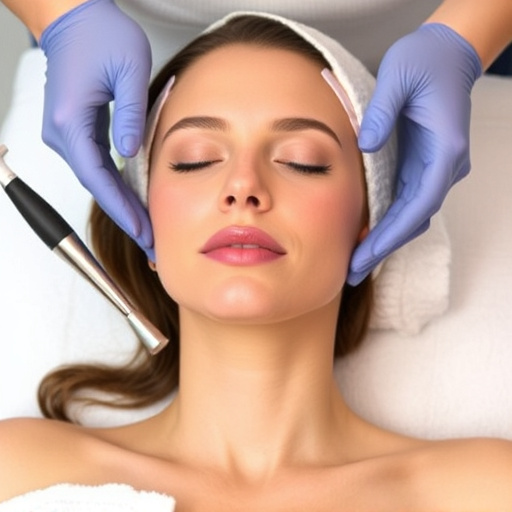
When it comes to addressing deep skin lesions caused by cystic acne, medical treatments offer a range of effective solutions. Topical medications, such as retinoids and benzoyl peroxide, are often the first line of defence, working to unclog pores and reduce inflammation. However, for more severe cases, deeper interventions are necessary.
In addition to traditional acne treatments, procedures like chemical peels and laser therapy have shown promise in treating deep skin lesions. Chemical peels use a combination of chemicals to exfoliate the skin, removing damaged layers and promoting new, healthier skin growth. Laser therapy, on the other hand, targets specific skin issues with concentrated light energy, stimulating collagen production and improving pore refinement while also offering skin tightening benefits. These advanced treatments offer hope for achieving clear, healed skin.
Non-Invasive Therapies and At-Home Care Routines
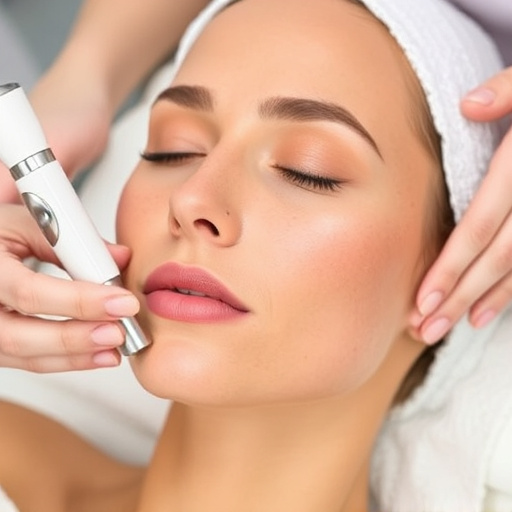
Non-invasive therapies offer a gentle yet effective approach to managing cystic acne. Treatments like chemical peels and customized facials are becoming increasingly popular for their ability to target deep skin lesions without causing significant discomfort or downtime. Chemical peels use a combination of acidic solutions to exfoliate the skin, unclogging pores and reducing inflammation. Customized facials, on the other hand, tailor treatments to individual skin types and needs, often incorporating advanced techniques like microdermabrasion or LED light therapy to enhance results.
At-home care routines play a crucial role in complementing these professional treatments. Daily cleansing with mild, sulfate-free products helps remove excess oil and impurities without stripping the skin. Incorporating ingredients like salicylic acid or benzoyl peroxide can help prevent new cysts from forming. Additionally, consistent use of moisturizers and sun protection ensures that the skin remains healthy and resilient throughout the treatment process, contributing to overall skin health and a clearer complexion.
Cystic acne, with its deep skin lesions, requires a multifaceted approach. By understanding the causes and characteristics, we can effectively navigate medical treatments, from topical medications to light therapy, alongside non-invasive therapies and at-home care routines. Integrating these strategies offers a comprehensive cystic acne treatment plan tailored to individual needs, aiming to clear skin and restore confidence.
